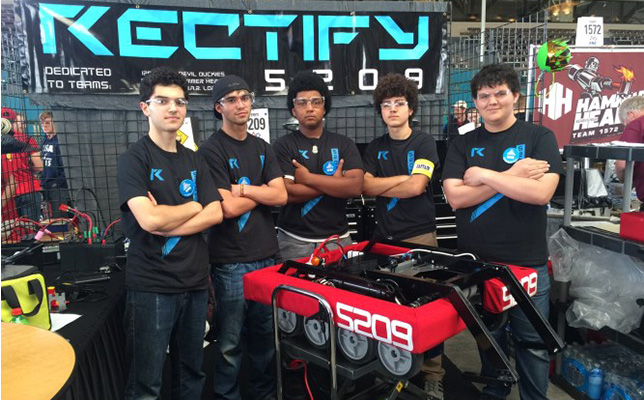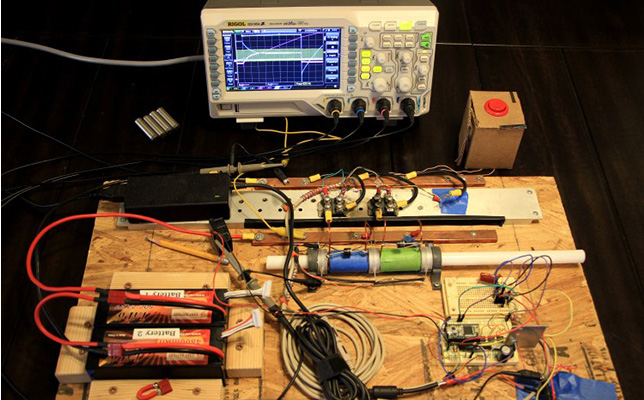Call for Entries for Maker Faire San Diego 2017

Rectify was a FIRST robotics competition team consisting of high school students from the 2016 Maker Faire San Diego.
The third annual Maker Faire San Diego, Oct. 7-8, in Balboa Park, is now open for entries. This family friendly, two-day event, 10 a.m.-6 p.m., welcomes a variety of diverse, out-of-the-box ideas from makers, inventors, tinkerers, do-it-yourselfers and hackers.
“Anything that people make, from the homemade all the way up to the professional maker, we want those people to be present at the event,” said Cody Nelson, director of events and public programs at Balboa Park Cultural Partnership, in an interview. “Technology is great here. Anything that’s made, that’s a technology-based project, from a drone and electric giraffe to a race car, we want them to share that project.”
She added, “San Diego loves robots.”
Maker Faire San Diego is open to the following types of submissions, according to a news release:
- "Student projects
- Robotics
- Hacked or homebuilt drones
- Arduino projects
- Raspberry Pi
- Space projects
- Food makers (not concessionaires)
- Beer makers
- Artisanal and traditional hand crafts
- Conductive materials projects
- Kit makers
- Interactive art projects
- 3D printers and CNC mills
- Textile arts and crafts
- E-textiles
- Home energy monitoring
- Programming languages (games, apps, etc.)
- Rockets and RC [remote control] toys
- Sustainability; green tech
- Radios, vintage computers and game systems
- Electronics
- Electric vehicles
- Science, viology, viotech and chemistry projects
- Puppets, kites and other whimsical creations
- Bicycles (and hacked bikes)
- Large-scale art
- Shelter (tents, domes, etc.)
- Music performances and participation
- Unusual tools or machines
- How to fix things or take them apart (vacuums, clocks, washing machines, etc.)”
To participate, complete an entry form at the San Diego Maker Faire website. Individuals or groups may submit entries. Groups can include schools and hobbyist clubs. Sept. 8 is the closing date for all entries.

A multistage electromagnetic linear accelerator (aka. Coign) from the 2016 Maker Faire San Diego.
For further details, visit the Maker Faire San Diego website. Maker Faire San Diego is produced by the Balboa Park Cultural Partnership and the San Diego Makers Guild.
About the Author
Richard Chang is associate editor of THE Journal. He can be reached at [email protected].